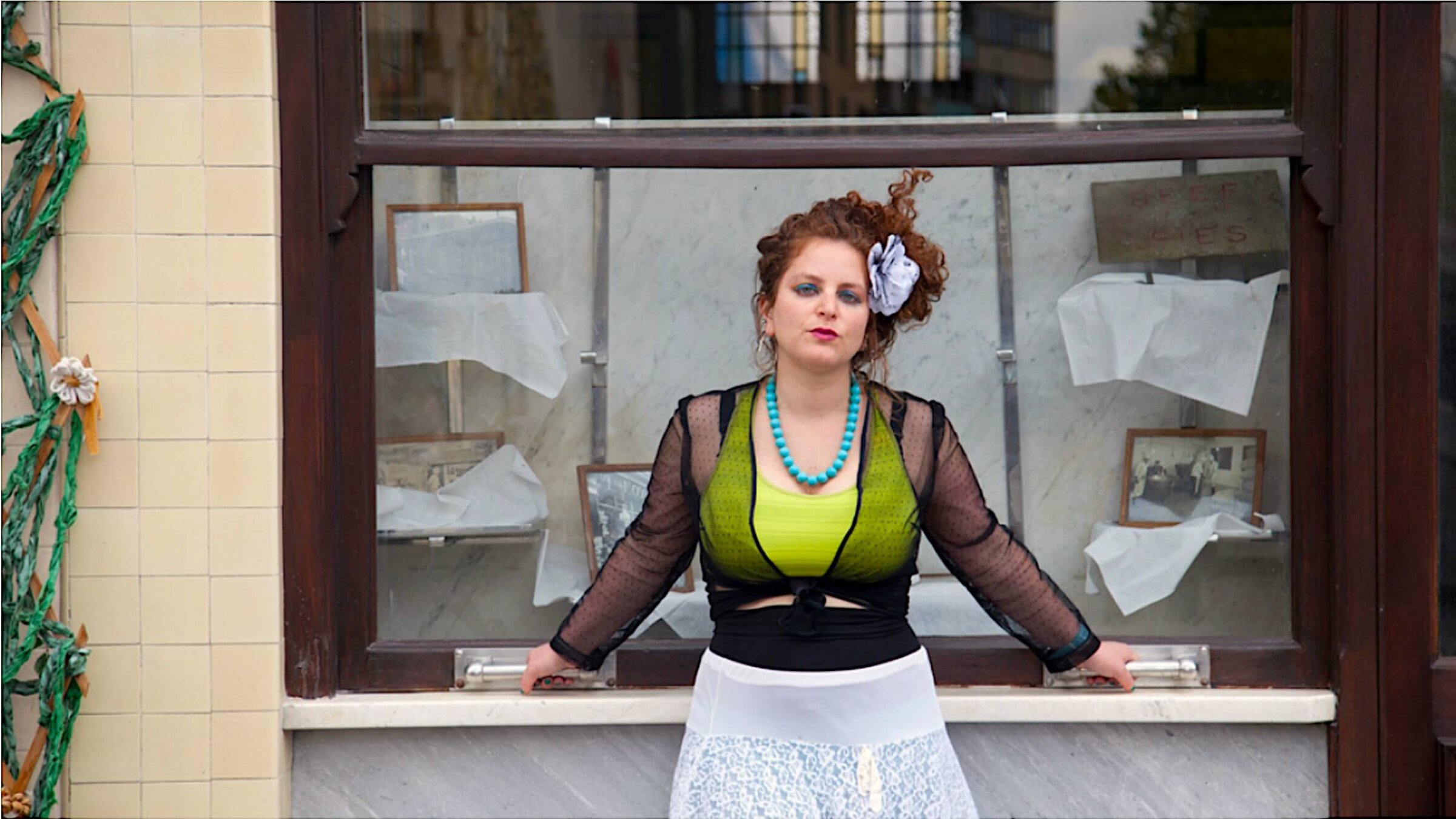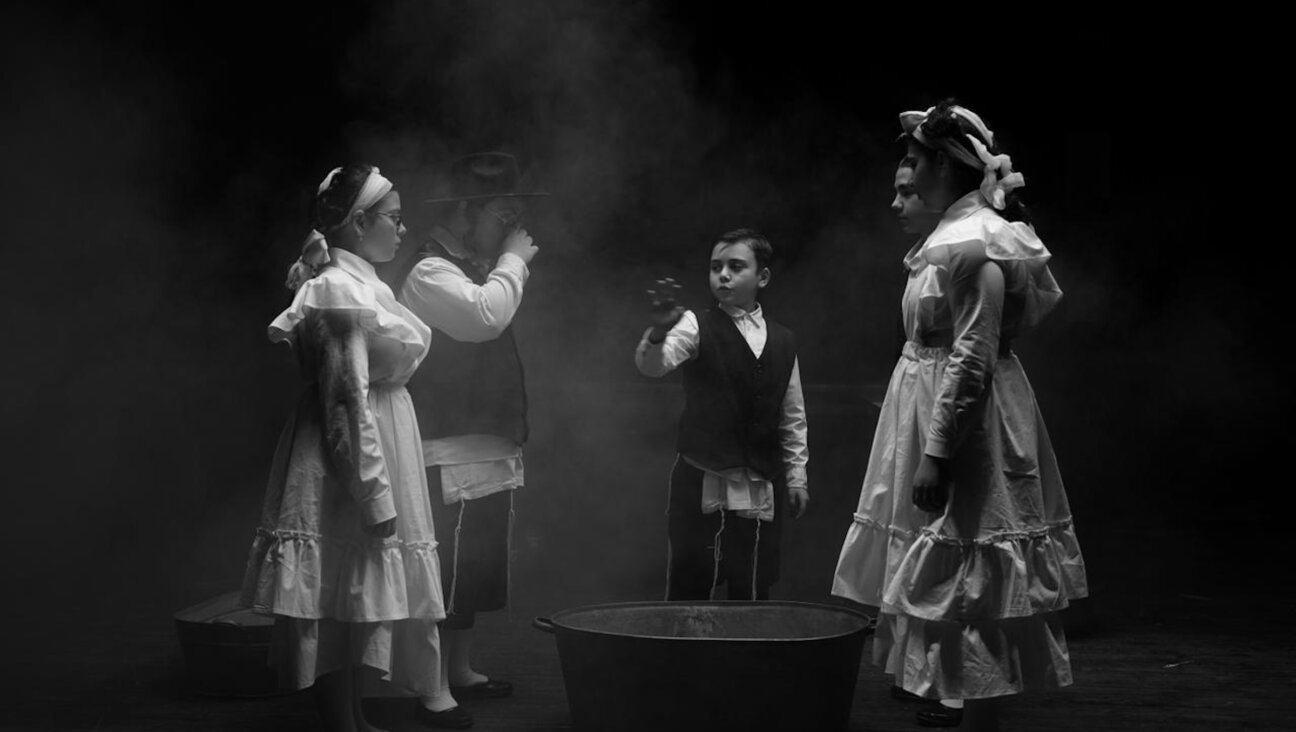New record label boasts young (and female) singers of cantorial music
The producers of ‘Khazones Underground’ hope this Ashkenazi musical genre can be revived, just as klezmer was

Cantor Rachel Weston Courtesy of Khazones Underground
Khazonim, or cantors, like Yossele Rosenblatt and Gershon Sirota — once household names that commanded massive respect and even bigger paychecks — have lost their luster since their heyday in the “Golden Age” of the early 20th century.
To the dismay of fans of khazones — the unique blend of traditional prayer and classical opera that once dominated the Ashkenazi synagogue and stage — few people today have the specialized cultural knowledge required in passing the musical tradition down from teacher to student.
Another traditional Jewish musical genre once found itself in a similar situation: klezmer music. Then, in the 1970s, the Balkan Arts Center of New York City, which later became the Center for Traditional Music and Dance, became the focal point for a remarkable klezmer revival. They recorded legends like Dave Tarras who taught new generations of musicians, and became a supportive ecosystem for a genre that had been nearly discarded.
Following this example, Jeremiah Lockwood and Judith Berkson, founders of the new Brooklyn-based record label Khazones Underground, are using a combination of recordings, concerts and community organizing to achieve a revival for this genre as well. They are well-qualified for this massive undertaking: Lockwood is the grandson of khazn Jacob Konigsberg, and a scholar. He is also the long-time frontman of the khazones-infused–rock group The Sway Machinery. Berkson is a cantor, composer and teacher.
Aside from a symposium and concert at the upcoming Yiddish New York festival, they have been teaching and writing about khazones, cultivating a new generation of dedicated performers from diverse backgrounds.
As part of their efforts, Lockwood and Berkson are officially releasing three albums on Dec. 1 that includes a reissue of an album of contemporary Hasidic cantors; an album from The Sway Machinery which uses surreptitiously-taken “bootleg” recordings of Golden Age cantors as jumping-off points, and perhaps most excitingly — an album of all-female cantors, or khazntes.
The album, The Return of the Immortal Khazntes featuring Judith Berkson, Riki Rose, Rachel Weston and Shahanna McKinney-Baldon, draws on the history of female cantors who used to perform on the theater stage. Berkson noted in an interview that what made this album special was that their inspiration is the sound of the old khazntes.
“A lot of women cantors now are trained to sing quite high, in a soprano range,” Berkson said. But these four khazntes sang in a wider range, including alto, imitating the often baritone ranges of their male counterparts.
Berkson opens the album with “V’hu Yashmiyeynu,” accompanied by San Francisco’s renowned Kronos Quartet. The piece, originally performed by the cantor and Yiddish actor Moishe Oysher, is, as Lockwood describes it, “an amazing kind of knock-’em where it hurts, showstopper piece.”
Riki Rose, originally from the Satmar Hasidic community, expressed a similar kind of revelatory feeling. Even though she didn’t hear women singing this kind of music earlier in her life, it seemed very natural to her to sing in a lower register.
The other two featured cantors have equally interesting backgrounds: McKinney-Baldon is researching Madame Goldie Steiner, the only known African American woman performer of khazones in the Golden Age; and Weston is a British cantor trained extensively in Yiddish music.
The album, The Dream Past, is, on the face of it, aggressively different from “The Return.” Lockwood, reviving The Sway Machinery, which once toured the world inserting khazones themes under the guitar and drums, is now more revealing about the Jewish background of its pieces. Each song begins with an introduction from a “bootleg” recording of live prayer as a jumping-off point.
Golden Ages: Brooklyn Chassidic Cantorial Revival Today is a reissue from 2022, but it’s every bit as notable for bringing in modern Hasidic cantors. Interestingly, even the deeply traditional Hasidic community had abandoned khazones, leaving the few remaining Hasidic fans of the genre feeling marginalized by their own community.
Singer Yanky Lemmer, whom Lockwood met while observing Brooklyn’s Hasidic khazones singing circles, will be part of the performance at Yiddish New York — a truly remarkable occurrence due to the well-known chasm between the Hasidic and Yiddishist worlds.
Lockwood says that this current trio of records is just the beginning. Archival recordings are coming next, as well as various events and gatherings. He definitely sees positive signs that Khazones Underground could uplift this kind of music. “I wouldn’t say that’s an institution yet, but we have aspirations that it can support this kind of work,” he said.

















